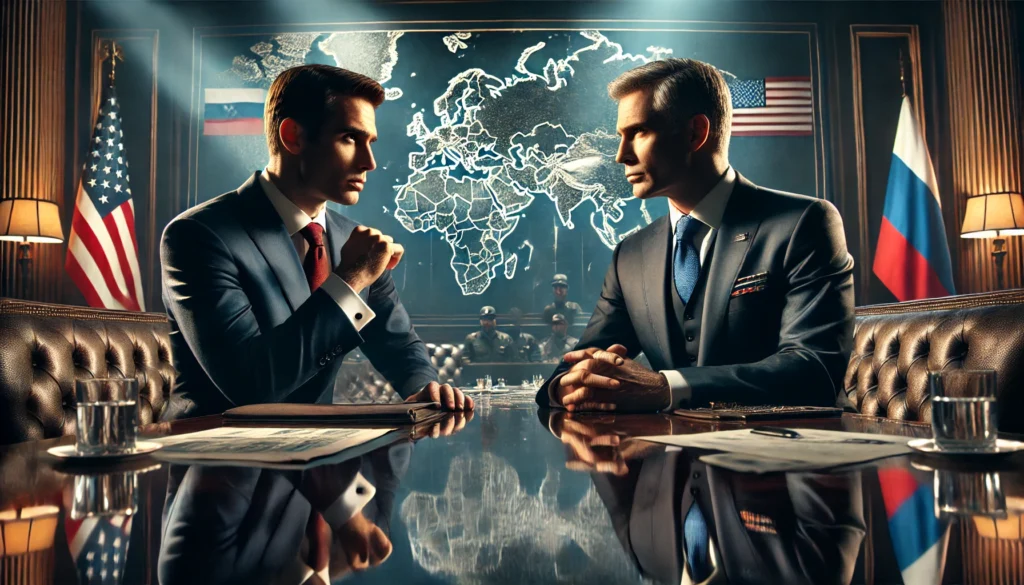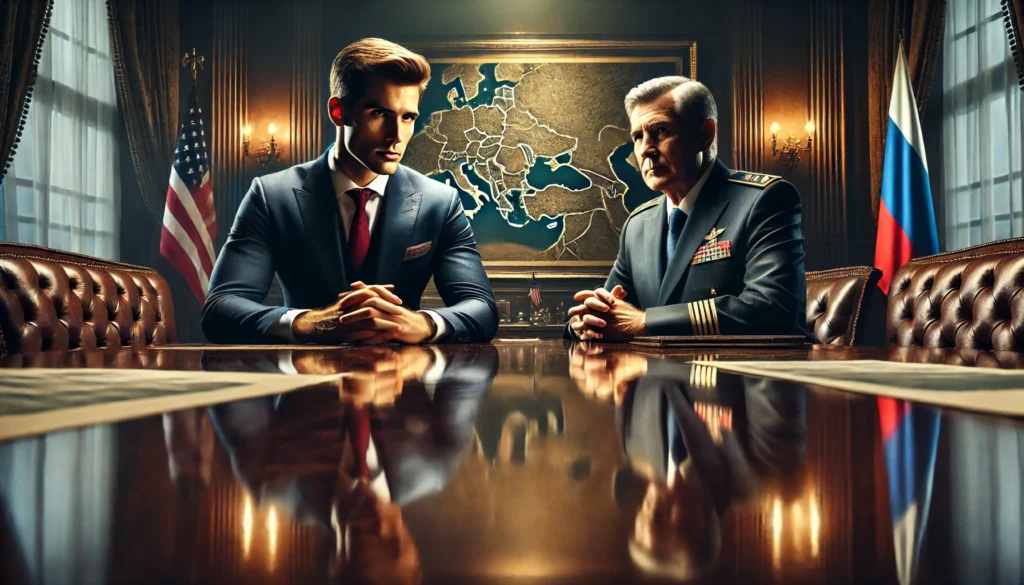Published Date: March 17, 2025 ✍️ Author: Global World Citizen News Team 📌 Source: GlobalWorldCitizen.com
President Donald Trump is set to hold direct talks with Russian President Vladimir Putin on Tuesday as the U.S. intensifies efforts to broker a ceasefire in Ukraine. With European allies ramping up their support for Kyiv, concerns are mounting over what concessions Trump might offer to end the three-year-long war.
U.S. Pushes for Peace Amid Rising Tensions
Speaking to reporters aboard Air Force One on Sunday, Trump expressed optimism about the negotiations. “We’re making good progress with Russia,” he said. “We may have something to announce by Tuesday. There’s a very good chance for a deal.”
His administration has been engaging with Moscow in recent weeks, hoping to facilitate a ceasefire. However, European leaders fear Trump’s direct diplomacy could weaken Ukraine’s long-term security, potentially leading to a settlement that favors Russian interests.
Key Issues on the Table
Trump confirmed that territorial disputes would be central to the conversation. “The land situation is very different from before the war,” he stated. “We’ll be talking about land, power plants—big issues that need resolution.”
His remarks hinted at potential negotiations over the division of Ukrainian territories, a prospect that has alarmed Kyiv and its allies. “We’re already discussing the allocation of certain assets,” Trump added, further fueling speculation about territorial concessions.
Russia’s Stance and Battlefield Realities
Putin, meanwhile, has shown little interest in an immediate halt to hostilities. His forces, now bolstered by North Korean troops, have made gradual advances, including recapturing areas in the Kursk region that Ukraine had seized in a surprise offensive last year.
Last week, U.S. envoy Steven Witkoff met with Putin in an attempt to negotiate a pause in the fighting but failed to secure a breakthrough. Moscow has insisted on a lasting agreement that meets its strategic demands, including:
- Ukrainian neutrality,
- A significant reduction of Ukraine’s military,
- Recognition of Russian control over occupied territories.
These conditions remain unacceptable to Ukraine, which continues to resist territorial concessions.
Europe Strengthens Its Support for Ukraine
As Trump prepares for talks with Putin, European nations are doubling down on their economic and military support for Kyiv. On Saturday, a coalition of Western leaders, including the UK, Canada, Australia, and several European nations, agreed to impose further economic restrictions on Russia.
British Prime Minister Keir Starmer emphasized the need for stronger measures, stating, “At this stage, applying maximum pressure on Russia is critical.”
Additionally, the Sunday Times reported that European nations are finalizing plans for a 10,000-strong peacekeeping force for Ukraine. The majority of troops would likely come from the UK and France, with support from around 35 nations offering weapons, intelligence, and logistical assistance.
Will the U.S. Provide Security Guarantees?
Despite the growing European commitment, officials are seeking U.S. backing in the form of air support, intelligence-sharing, and border surveillance. However, it remains uncertain whether Trump will agree to these measures.
While the president has suggested he could increase economic and political pressure on Russia if Putin refuses to negotiate, he has been notably more critical of Ukraine and its leadership than previous U.S. administrations.
With global stakes high, Trump’s meeting with Putin could reshape the course of the war—and redefine America’s role in the conflict. Whether it leads to peace or further division remains to be seen.


